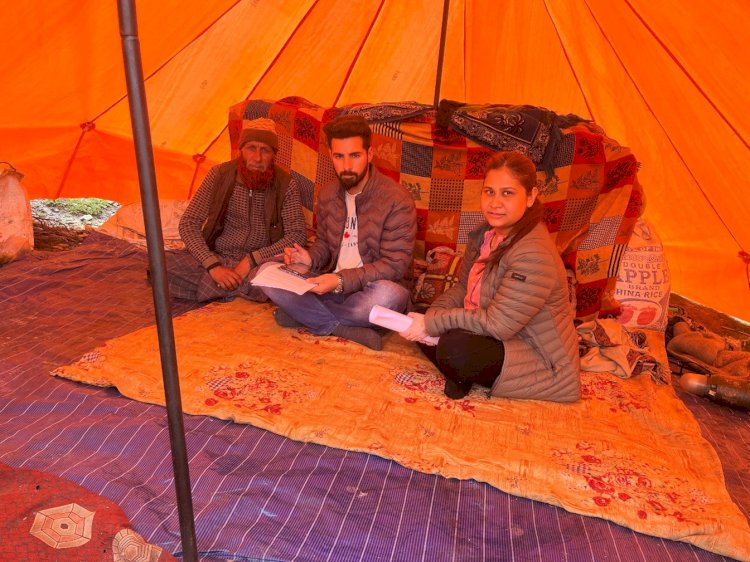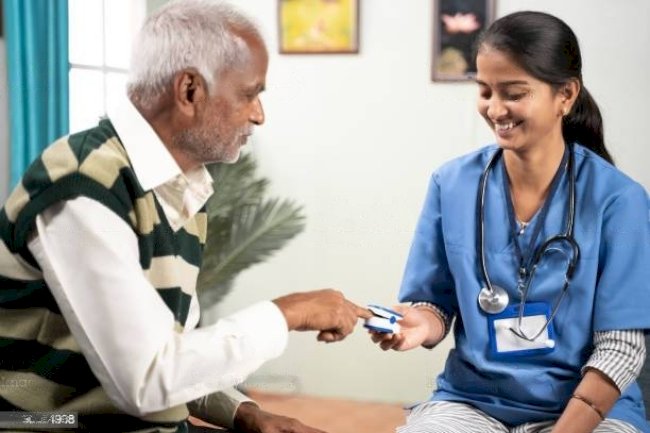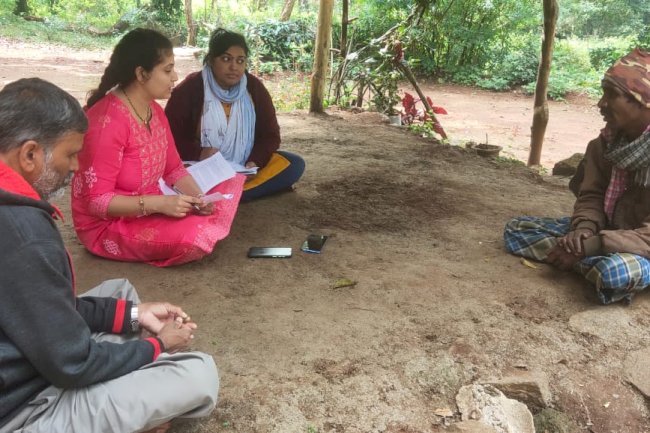Behind Bakarawals in Kashmir Valley- Equity in healthcare
Behind Bakarawals in Kashmir Valley - for equity in healthcare by assessing the needs of nomadic tribes

Modern medicine provides a relief to our ailments in today’s fast-paced world, but our indigenous communities are still widely disadvantaged in terms of health access. The nomadic tribal communities face further problems in accessing healthcare because of their mobility or transhumance. They also have highly constrained healthcare access because of the severe remoteness of the locations they migrate to during certain months of the year.
The Gujjars and the Bakharwals are the largest and second-largest nomadic tribes in Jammu Kashmir. These tribes are widely pastoral in their occupation and lifestyle, have been affected by marginalization in various forms such as social discrimination and political isolation, and have also been found to reside in extremely poor socio-economic condition. The conflict-prone nature of the areas where these tribes reside and move complicates their health access. There is also a lack of systematic health surveillance data available on these groups because of their transhumance.
GRAAM has recently started a study supported by WHO in the Ganderbal and Bandipora districts of Kashmir to understand the demographic profile of these nomadic tribes and their patterns of mobility and settlement. The aim is to understand their health status, social determinants of health and healthcare related beliefs, customs, habits, and traditional practices.
In the past two months, our team has conducted offline training on the tools. Data collection has been conducted by Dr Kaveri and Ms Devina in Srinagar at the local partners office. On 6th and 7th July, the GRAAM team conducted IDI’s with ASHA, ANM and MO-CH and CHO in Sonamarg in the Ganderbal district. On 8th July, the they conducted IDI and FGD with the Bakarwal Community at the Razdan top in Bandipora district. Few household surveys were also conducted. Currently, the local partner organization is collecting the data in both the districts simultaneously.
The Govt of J&K has been attempting to address the health access of these mobile communities through measures such as the provision of MMUs for their benefit, and provision of one ASHA per 250 persons in the Dhoks (temporary settlements). Evidence on the health status, needs, social determinants, and healthcare access of these communities, gathered through a systematic and comprehensive approach, is expected to be beneficial to the authorities for future planning and implementation of healthcare measures for the benefit of these communities.
As we embark on this journey into the heart of Jammu and Kashmir's nomadic tribes, we hold the promise of uncovering insights that can form the pillar of transforming healthcare delivery and improving the well-being of these resilient communities.
Stay tuned for updates on this remarkable project that envisages a healthier, more equitable future for all.
What's Your Reaction?





















